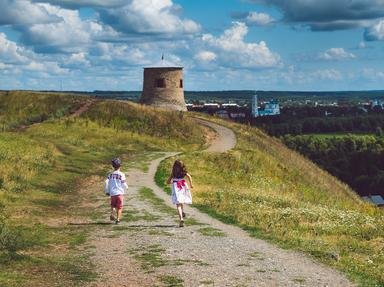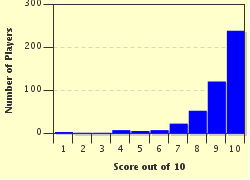Quiz Answer Key and Fun Facts
1. Which of these early kings was the first to be known as 'the Great'?
2. William I became king in 1066 after defeating King Harold II at which battle?
3. The Hundred Years War was fought between England and which other country?
4. Which English queen was known as Gloriana?
5. This man is celebrated every year in the UK, even though he tried to blow up the Houses of Parliament. Who is he?
6. Which man became ruler in 1653, although he was not a king?
7. In 1666 there was a big fire which destroyed much of which English city?
8. Which man won a famous victory at the Battle of Trafalgar in 1805?
9. Who was the Prime Minister of Great Britain during most of the Second World War?
10. Which lady made history when she became Prime Minister of Great Britain in 1979?
Source: Author
rossian
This quiz was reviewed by FunTrivia editor
NatalieW before going online.
Any errors found in FunTrivia content are routinely corrected through our feedback system.


